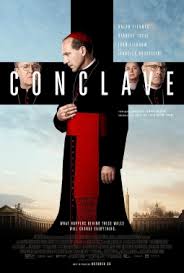
Yes, we are early in Oscar season, but IMHO, we already have a front-runner. Conclave might be everything you look for in Oscar bait, but it is an exceptional piece of cinema. There is not a weak link in this film. The story is riveting. The characters are engaging. The cinematography is stunning. The overall work is entertaining and thought-provoking. Oh, and there is a twist at the end that, if you’ll forgive the hyperbole, might restore your faith in humanity.
Let’s start with the screenplay.
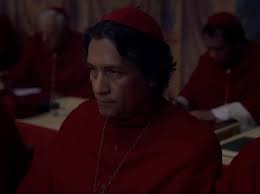
Screenwriter Peter Straughan gave us a magnificent adaptation of Robert Harris’s novel. The screenplay is nothing less than a parable for today, not only with our own government but with governments around the world. Reactionary politicians are on the march in ways that jeopardize our freedom for some perceived security against the “other,” whatever those “others” happen to be. Along the way, Americans, in particular, are losing sight of what once made us great. The same could be said about the conference of cardinals in Conclave, as a small group of men seek power for themselves over what should be better for all. They look longingly at the past instead of boldly into the future. But a few men, idealists though they may be, see a better future with leadership that is more sensitive and empathetic. Straughan drew a clear line in the sand over which way would be the best way for the Church and, parabolically, the best way for the United States.
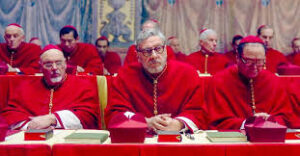
The acting is sublime.
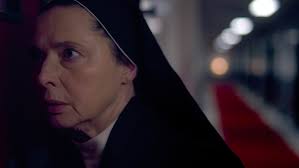
Three decades ago, Ralph Fiennes’ acting performance carried The English Patient to a Best Picture win, but he did not win Best Actor, even though the only reason that film won Best Picture was because of his magnificent performance. Without seeing other Oscar contenders yet to come, I hope the Academy gives Fiennes a make-up call and bestows that award on him for this film. While Fiennes had plenty of great supporting help in The English Patient (Best Supporting Actress winner Juliette Binoche, Best Actress winner Kirsten Scott-Thomas, Willem Defoe, Colin Firth, and a host of several others), he has another amazing supporting cast in this film with Stanley Tucci, John Lithgow, and Isabella Rossellini, just to name a few. The acting from top to bottom in this film is wonderful and makes the film much more enjoyable.
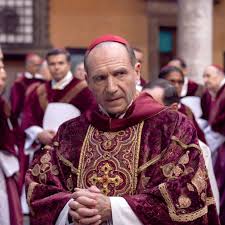
This film is beautiful.
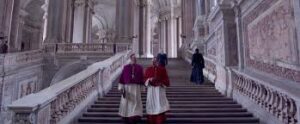
Director Edward Berger (All Quiet on the Western Front) and director of photography Stephane Fontaine crafted a beautiful film that helps tell the story and set the mood through the visuals just as much as through the dialogue. There are scenes that are framed and lit to accomplish specific moods and points of view. There are shots where the characters are framed around borders that make them feel restricted. There are times when there is no color anywhere in the shot, portraying a mood of cool calculation. There are shots focusing on the pain of Lawrence (Fiennes) as he wrestles with his faith in God while simultaneously attempting to uphold the sanctity of the Church’s traditions. This is a truly beautiful movie.
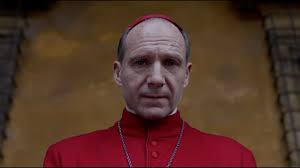
This is a movie about resurrection—not the literal resurrection of Christ, per se, but the resurrection of faith. It is a political thriller with an ending that is hopeful and optimistic about the future. It takes a lot to get there. The film is loaded with drama and intrigue, but the ending is satisfying and hopeful.
I cannot recommend this film highly enough.
For more thoughts on this film, check out my podcast, the Gen X v Z: A Movie Podcast, which is available wherever you get your podcasts.